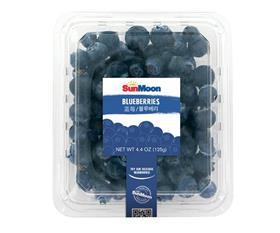
SunMoon Food Company has reached an investment agreement with Yiguo, which will see the leading Chinese fresh food e-commerce player acquire 51 per cent of the Singapore-listed fruit trading company and potentially raise S$24m in new funding.
In a statement last Friday, SunMoon announced its plans to place out 333.3m new shares at S$0.045 each (a total of S$15m) to its existing business partner Shanghai Yiguo E-commerce.
Following the placement, the investor will hold 51.1 per cent of the enlarged share base of the company. In addition to the new shares, Yiguo will also receive free warrants at a ratio of one warrant for each two placement shares subscribed (a total of 167m unlisted warrants). The warrants are to be exercised at S$0.054 per share.
SunMoon plans to apply to the Securities Industry Council for a waiver that will enable the deal to go ahead without Yiguo making a general offer for the company. The deal is subject to shareholders’ approval.
Upon full subscription of both shares and warrants by Yiguo, SunMoon will be able to raise S$24m in new funding, adding to the S$6m the company already has, and creating a total fund of close to S$30m for the group to execute its brand strategy.
Gary Loh, executive chairman and CEO of SunMoon Food Company, described the deal as “a major milestone” in his ten-year effort to rebuild the company.
“With the fresh funds, we would be able to focus on the company’s growth, with immediate access to Yiguo’s wide distribution network in China, strong capabilities in fresh food online operations and cold chain management,” he said.
Loh, a former broker with UOB Kay Hian, is executive chairman of First Alverstone Company, the current major shareholder in SunMoon. First Alverstone stepped in as an investor in 2007 after SunMoon ran into financial problems. Over the years, Loh has pumped an estimated S$34m into the company, restructuring its debt and putting in place a new business model.
While SunMoon originally owned fruit plantations and processing and storage facilities in China, it has since divested these, moving to an asset-light, consumer-centric business model in recent years.
The model is designed to leverage on the company’s SunMoon brand, and its skills in managing the global fruit supply network. It has grown its product range to more than 100 different types of fruits and fruit-based products, and sells to customers with 11,000 sales points globally.
In a company statement, SunMoon said Yiguo’s dominant e-commerce position would allow SunMoon to expand its footprint in China, as well as ramping up SunMoon’s supply sources. “We now have a backer than endorses our brand value and strategy plan,” said Loh.






No comments yet